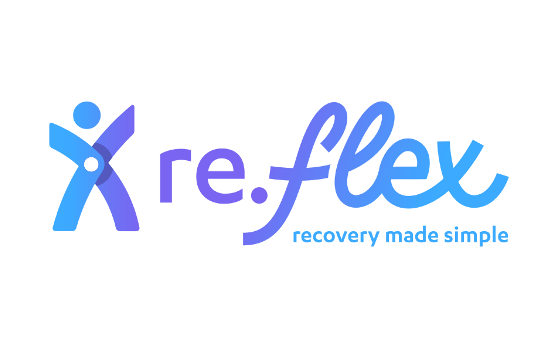 The surgical treatment of musculoskeletal conditions is at a high level thanks to continuous improvements in research and clinical care. The same applies to postoperative physiotherapy, which supports patients in their healing process. Most important for a comprehensive recovery however, are the patients themselves - through independent training outside the prescribed therapy sessions. Unfortunately, the motivation of many patients in this respect is not particularly strong and the fear of doing something wrong contributes to a frequently low adherence to training protocols. The result: therapy is unnecessarily prolonged and the risk of complications increases.
The surgical treatment of musculoskeletal conditions is at a high level thanks to continuous improvements in research and clinical care. The same applies to postoperative physiotherapy, which supports patients in their healing process. Most important for a comprehensive recovery however, are the patients themselves - through independent training outside the prescribed therapy sessions. Unfortunately, the motivation of many patients in this respect is not particularly strong and the fear of doing something wrong contributes to a frequently low adherence to training protocols. The result: therapy is unnecessarily prolonged and the risk of complications increases.
"Our goal is to improve the rehabilitation process with re.flex, for everyone involved," says Camil Moldoveanu, CEO and co-founder of re.flex. And he knows what he is talking about. As five-time World Champion and six-time European Champion in Brazilian Jiu-Jitsu, Camil suffered a serious knee injury in the 2015 World Cup final. After completing a first stretch of physiotherapy he seemed to be fit again, only to injure himself again a short time later. After surgery and seven months of rehabilitation he knew better than to go back to training too early. This series of events almost ended his sporting career. The reason for all that: Camil stopped physio and training at home after he had no more pain and felt he could fitagain.
The goal of re.flex is to prevent or at least minimise the risk of complications and to close the gaps between doctor, therapist and patient. "With the help of our app, the therapist creates individual training programs for the patients. Therapists are enabled to track patients' compliance, intervene or adapt the training if necessary. Patients on the other hand are supported in the execution of the exercises by the sensors, using real-time 3D animations and feedback. In addition, the therapy progress is documented," explains Camil. And he adds: "Thanks to the direct feedback of the sensors, patients are able to track their own performance on their smartphone or tablet and check whether they are performing the exercises correctly. This reduces fear of mistakes and provides security."
"Until now, the quality of therapy as well aspatient compliance have been a black box for me, especially in postoperative aftercare. The standardised exercises, the feedback from the sensors and the transparent progress monitoring enable me and my patients to actively influence the course of therapy and thus support the success of the treatment," says PD Dr.med. Tobias Winkler, senior physician at the Charité - Berlin and consultant at re.flex.
Interested therapists, clinics and rehabilitation facilities are invited to contact re.flex.
For further information, please visit:
http://www.reflex.help
About re.flex
re.flex is an innovative telerehabilitation-as-a-service solution using two motion tracking sensors and digitised physical exercises to provide an easy-to-use smart rehabilitation assistant, helping both patients and the therapist to improve the recovery process.Unique to re.flex are the range of exercises tracked by the sensors and the different angles of lower limb movements that are constantly monitored for a safe and effective rehabilitation solution. Whether the exercises are performed standing, sitting-down or in a supine position, the proprietary software reliably tracks and documents the patient’s training and progress.
Via the re.flex app, therapists create individual training programmes for their patients using the standardised exercises provided. Patients use the app to perform the individually selected exercises while the therapist can analyse the patients' progress.
Depending on the individual patient's performance, the therapist can add additional exercises;adjust training frequency and intensity and individual goals. While exercising, 3Danimations support the correct execution of the exercises - in real time and directly on the smartphone or tablet.
re.flex currently is available for pilot projects and therapists for the rehabilitation of knee related conditions.In the near future it will also integrate hip, back hand and shoulder exercises, supporting patients recovering from injuries, endoprosthetic surgery and with degenerative conditions equally.
During 2019, re.flex is set to test use cases in other areas such as prevention, pre-habilitation and occupational health.
About Kineto Tech Rehab
Kineto Tech Rehab, the company behind re.flex, is a start-up founded in 2015 by Camil Moldoveanu and Andrei Kluger in Bucharest, Romania.With a background of more than 12 years in developing sensor technology and in IT, the founders successfully implemented multiple IT solutions and software products. The most important projects were a bomb-detection robot for the Romanian Military and Government as well as a custom-built CRM system for one of the UK's top 10 law firms.
The shift from IT outsourcing to product development was a long nourished wish that finally became reality in 2015 with the development of a sophisticated movement algorithm to integrate in a wearable solution. This technology is at the core or the solution now being marketed under the brand “re.felx”.